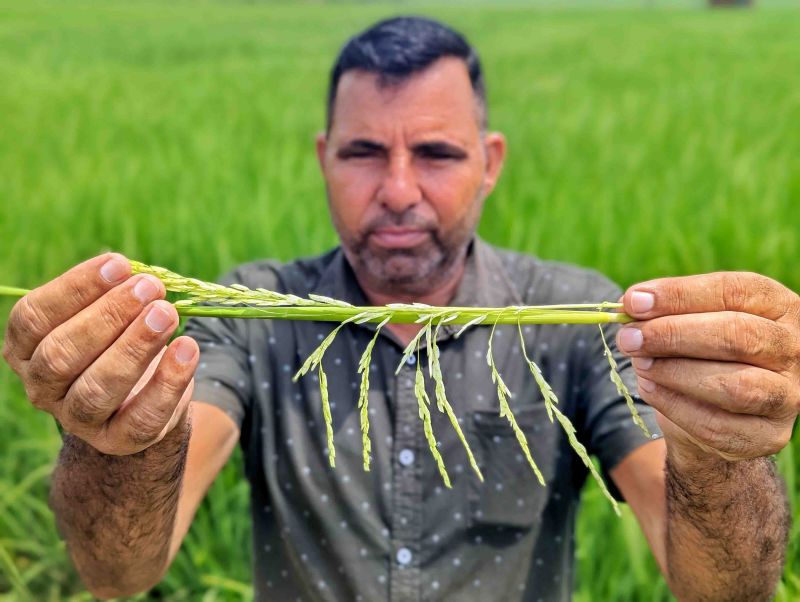
India's Farmers Resurgence: A Battle for Rights and Dignity

In a remarkable turn of events, Indian farmers have reemerged on the forefront of protest against the government, demanding justice and fair treatment. The ongoing standoff between the farmers and the authorities signifies a crucial moment in the country's political landscape.
A Historic Revival
After a significant showdown with Prime Minister Narendra Modi over agricultural laws in the past, Indian farmers have once again taken to the streets, voicing their grievances and seeking redress. The current demonstrations, characterized by a resolute demand for higher crop prices, have garnered widespread attention as the nation gears up for a crucial election period.
The recent resurgence of farmers' protests has reignited a familiar narrative of dissent and resilience, echoing the spirit of past struggles for justice and equity. The scenes unfolding at the borders of New Delhi bear witness to the unwavering determination of farmers to secure their livelihoods and assert their rights in the face of adversity.
Upholding a Legacy of Struggle
The saga of the farmers' agitation traces back to the seminal events of 2021 when Modi's government faced intense pressure to repeal contentious agricultural laws that threatened the traditional farming practices of millions. The eventual capitulation by the authorities marked a watershed moment in the history of Indian agriculture, underscoring the power of collective action and grassroots mobilization.
Amid the current standoff, the farmers remain steadfast in their demands for a guaranteed minimum support price and greater financial security in a sector plagued by uncertainty and exploitation. Their unwavering resolve reflects a deep-rooted commitment to upholding the dignity and rights of those who toil the land for the sustenance of the nation.
Police fire teargas to disperse farmers marching towards New Delhi during a protest at the Haryana-Punjab state border on February 21, 2024.
Economic Imperatives and Human Tragedies
The agrarian crisis in India, characterized by rampant poverty and indebtedness among farming communities, underscores the urgent need for comprehensive reforms and sustainable policies to safeguard the welfare of agricultural workers. With a majority of the population reliant on farming for their livelihoods, the plight of farmers resonates deeply with the socioeconomic fabric of the nation.
Recent data reveals the stark disparities in income and living standards faced by farmers, highlighting the precarious nature of their occupation and the systemic challenges that perpetuate their marginalization. The struggles of individuals like Satish Kumar, whose crops were devastated by natural calamities, epitomize the harsh realities confronting farmers across the country.
Satish Kumar says the floods last month destroyed his rice paddy in Haryana, India.
Political Dynamics and Collective Resilience
As the farmers' protests reverberate across the political landscape, the government faces mounting pressure to address the grievances of the agricultural community and chart a path towards equitable solutions. The implications of the ongoing standoff extend beyond immediate policy considerations, signaling a broader debate on governance, accountability, and social justice in India.
The resilience and unity displayed by the farmers underscore their unwavering commitment to securing a fair and just system that recognizes their contributions and upholds their rights. In the face of adversity and uncertainty, the farmers' movement stands as a testament to the enduring spirit of grassroots activism and the power of collective mobilization.
Farmers shout slogans during a protest to demand minimum crop prices, near the Haryana-Punjab state border at Shambhu in Patiala district about 200 kilometres north of New Delhi on February 16, 2024.













